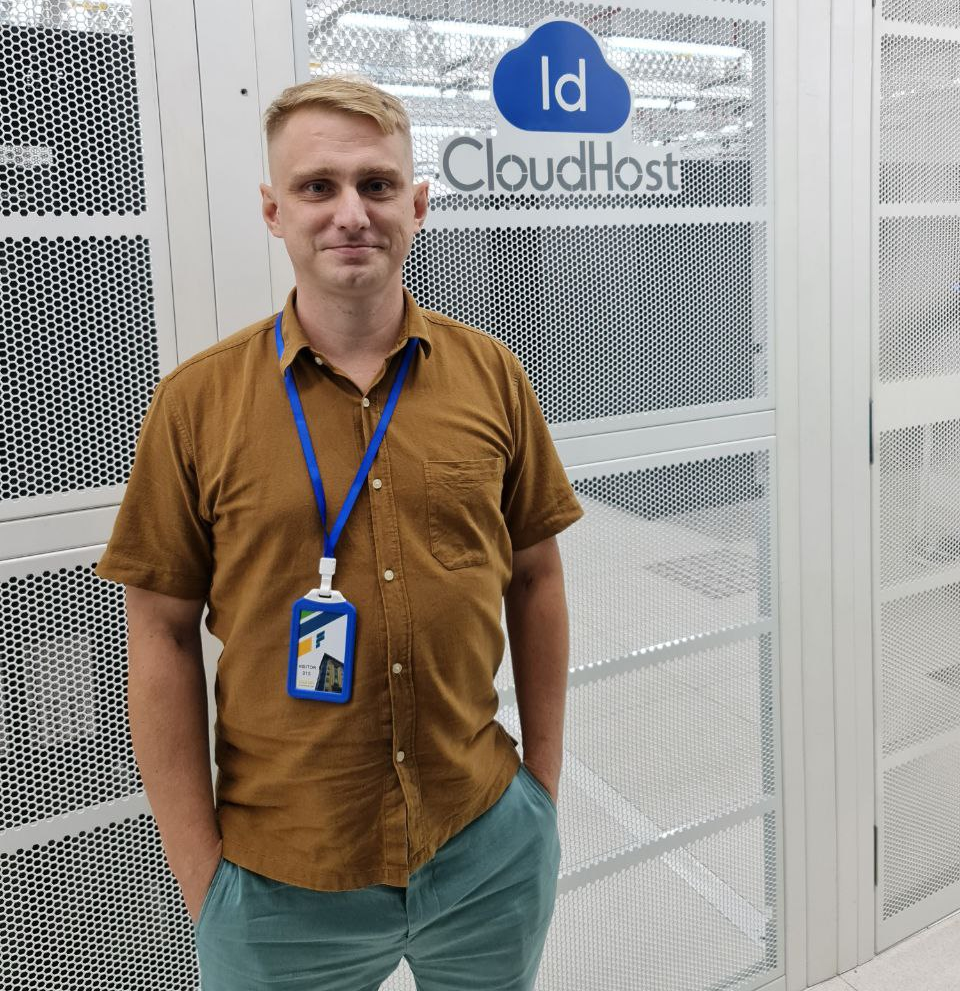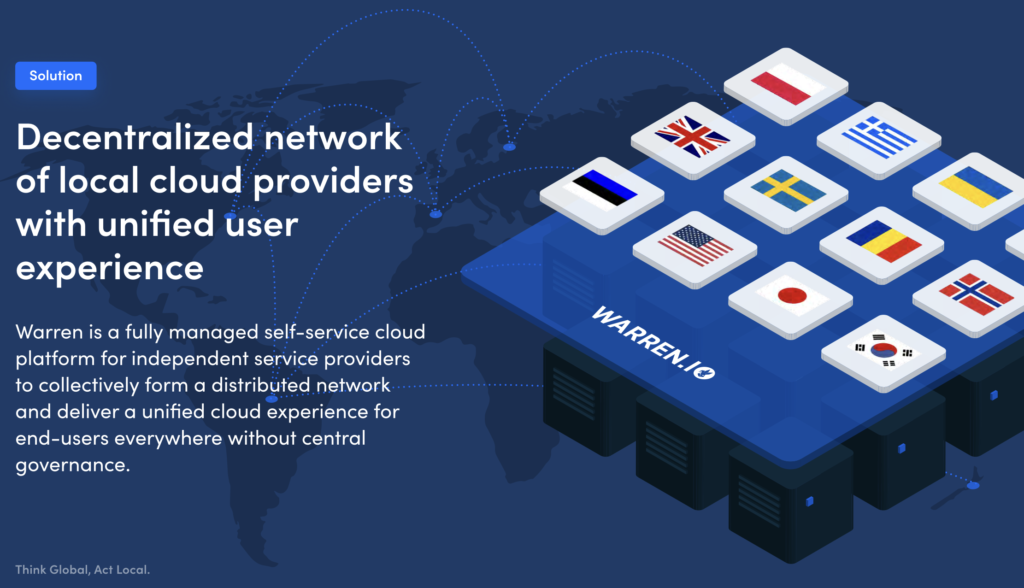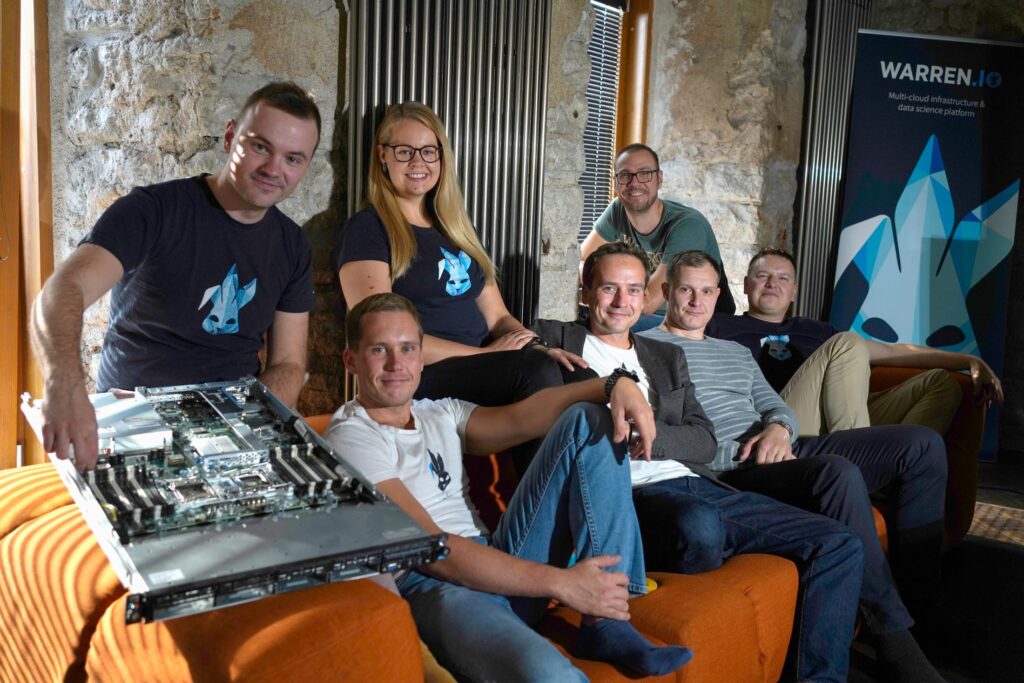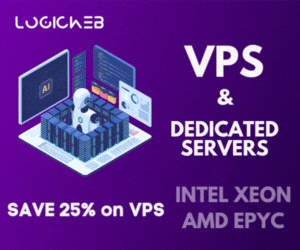
Today we have another awesome interview for you, this time with Henry Vaaderpass, Co-Founder and Chief Business Development Officer at Warren.io, an Estonian startup that is bringing innovation to the cloud hosting space at an scorching pace. Their position in the industry as an platform outfitter is really fascinating and if you’re a provider looking to offer “big boy” cloud features to your customers, Warren might be the solution you’re dreaming of.
It’s a cool company, a cool story, and a cool interview, so read on and enjoy!
Q: Let’s start with an unavoidable question. Your HQ is in Tallinn, Estonia. Another Estonian LET member told that life there is normal but rather tense at the moment, for obvious reasons. How is your team doing in the present crisis?
Without getting too much into the current politics between Russia and the allies I would like to share my personal point of view about the “one-man war”. Despite the obvious economical impact all European citizens and nations can only lose, the current socio-economic climate in Europe (both East and West) is stronger than before the “special military operation” began on the 24th of February. We feel safe and strong, we feel more united than ever and most importantly we will support Ukraine with everything we have to help them to stop the killing of innocent people.
From the cloud infrastructure perspective, this war was a wake-up call that all countries should build a strong and independent digital infrastructure.

Henry Vaaderpass of Warren.io
Q: In a nutshell, what is Warren.io?
Warren’s white-labeled cloud platform is built for local data centers, cloud providers, web hosting companies, and MSPs to launch an IaaS offering on their own hardware in their own data center.
The intuitive user interface delivers the most recent technologies and software-defined infrastructure features to match the latest functional advantages of the hyperscale IaaS providers.
Warren’s long-term goal is to connect all these deployments and form a decentralized network of local providers so end users could easily consume global infrastructure without data sovereignty issues and relying on a single provider.
Q: Most providers in our community stitch together solutions like Solus, cPanel, and WHMCS. Bigger companies (Linode, DigitalOcean, all the way up to AWS and Azure) have sophisticated all-in-one dashboards their in-house PhDs create for them. When I looked at your offering, it seems like if I’m a small provider, I can now compete with the “big boys” because Warren replaces all my individual components with a unified, elegant system that greatly expands the features I can offer. Am I on track?
Yes. Very much so. In fact, the technical architecture of Warren is also produced by our in-house Ph.D. of distributed systems, Jaak Kõusaar. Therefore Warren is hardly comparable with the technologies you pointed out in terms of the quality of service, reliability, and redundancy. Some of the characteristics include distributed storage, high scalability, fast live migrations across hypervisor servers, failover instances of managed s services, highly available load balancing, distributed backups, and snapshots. A technically reliable platform is of course a key to providing a great cloud solution but not the whole picture.
Some of the “big boys” have produced very powerful features for the end users. We have made it our priority to also make a good portion of them simple and user-friendly for the local providers to stand out.
Q: This is either on-prem or SaaS, right?
It is on-prem for private clouds in some cases but our primary business model is to provide a managed Software as a Service deployed on the hardware in a data center of choice of the local public provider.
Q: Warren supports a lot of “big boy” features that we don’t see a lot at the low end: block storage, S3-compatible buckets, floating IPs, VM replicas, HA load balancing, etc. What other features are coming?
Since we release new features roughly every other week and deploy them to every provider with no downtime then there is always something new that the providers or end users have requested.
Some game-changing features I want to share with the reader are the seamlessly integrated federation that many providers have previously tried to deliver in vain. More and more localization-related features, a growing amount of software-defined networking functions, performance and scalability-related improvements, and also advancements expected by enterprise customers like better security, high availability, and on-premise deployments.
Another notable feature coming already this year is managed Kubernetes – enabling end-users to launch a high-availability cluster with a couple of clicks.
 Q: Is your product aimed at providers of a certain size? How big does a provider need to be in order to benefit from Warren?
Q: Is your product aimed at providers of a certain size? How big does a provider need to be in order to benefit from Warren?
While there are minimum hardware requirements in place to offer good redundancy and fault tolerance for production-grade service, you can still start with a relatively small cluster and grow it over time as you onboard end users. A few examples of recommended hardware setups can be found on our web site.
Q: I read this on your site: “The deployment of the platform is carried out by the Warren team during the onboarding process without additional costs.” So if I sign up, what is the deployment like?
We actually have written a cloud provider playbook that covers this and related topics quite extensively.
In a nutshell, we help the provider to plan the hardware stack to maximize ROI and make use of the hardware they might already have in place. Then help in planning the networks etc.
Once the hardware is in place we take the center stage and deploy, and configure the platform (incl the branding of the service). At the same time, the provider can prepare the website and other marketing materials for the service. When all is finished we run through some final tests to make sure the user experience is smooth throughout the system.
In terms of timeframes, we could technically do it in a few weeks but in practice, it is good to plan for a two-month process.
Q: You have two pricing models: 1€/GB/RAM, or on a revenue-sharing model. Tell us about the latter.
We believe the most effective way to partner with local providers is to keep our own skin in the game while offering the best possible end-user experience. This ensures that Warren will always stay committed to delivering the features and the quality of service the cloud providers need to best serve their customers. With the shared roadmap, shared responsibility, shared problems, and solutions we find it most natural to share the revenue and keep the partnership fully incentivized for the best performance.
Q: Warren Unified Cloud “enables Warren Partners to cross-sell each other’s infrastructure resources with a seamless user experience for the End User”. So maybe a Warren Partner in Japan would offer an S3 bucket service that would allow a Partner in France to say “we offer storage in Asia as well”…is that the idea or something else?
Exactly. Whether it is computing, storage, or any other resource an end user needs but their local provider can not offer the unified network of providers enables to cover the end user requirements where an individual local provider would fall short. Also today many end users have an international footprint themselves and these clients can only be well served with a global service – enabling local providers to pool together and get larger international clients is a totally new market segment that can be targeted with Unified Cloud.
Q: You guys raised some capital in 2020 from major players. The IaaS market is on fire, growing 30%+ YoY! There are other players in this space, but most seem to offer components instead of a full stack. Would OnApp be your nearest competitor?
OnApp used to have a somewhat similar dream (cloud federation) but with an important difference. They planned to centralize the local providers into the OnApp cloud but we plan to avoid this centralization and rather enable the local providers to resell each other. This changes everything – starting with end-user experience and the value they get (local support and payment options to name a few), the role of the local provider as they are the end-user facing entity, and the value from the architecture itself by having no central governance.
Q: What’s your company culture like inside?
We have an agile team with 10+ years of average experience in the industry that gets along very well. Being agile and with a flat organizational structure allows us to make decisions fast and have a responsive development process. We do have a multi-year roadmap, but we allow it to constantly change as we get more insight from the market and end users. On a daily basis, we focus on a more rigid and shorter 3-6 week roadmap. Since Covid, we have leaned heavily towards remote work like a lot of other development companies which has opened some new opportunities for us and allowed hiring people all over the country.
Another important cultural aspect is that we consider ourselves as an extension to local providers – meaning we interact openly and on a daily basis with our partners to exchange knowledge and learn/analyze how we can improve the platform, the processes, the roadmap, etc.

Q: Is Estonia a growing IT hub in Europe?
Absolutely. Estonia is well known for its advanced eGovernment services and electronic identity for over a decade now. The country runs on virtually zero paper trail. Whether you want to register a new company or renew your personal identification you can always do it online within minutes. Recently even more prominently the vibrant startup ecosystem has produced many billion-dollar companies with 7.7 unicorn-status startups per million people being by far the highest-ranking country in Europe. So there is obviously a vast IT talent pool present in Estonia.
Q: Anything else you’d like to share with our community?
So glad you have decided to ask that question using the word “community”. This is specifically what Warren is building to win local businesses globally eliminating the technological need to switch over to the Hyperscale IaaS providers. So my message to the community is that Warren is only as strong as our community of local cloud providers complementing each other with their infrastructure and service offerings effectively making the federation stronger with every new member joining in to outperform the cloud giants with the quality of service and the local support all the businesses will actually always choose first.
Thanks for the great read, Henry! This is a fascinating, fast-moving space – a real innovation race – and it’s fun to hear from front-line leaders. Be sure to keep an eye on Warren.io.





















Leave a Reply